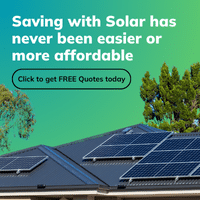Although people realise the potential of solar energy and how it can save them money, there are reasons why they hesitate to install it in their homes. These include finance and gaps in knowledge, such as how many solar panels do you really need. Then there’s the question of which solar company to choose. How do you know when you’re getting good service and a fair deal? That is where an a program such as the Positive Charge solar scheme raises its hand.
In the past decade local governments and community not-for-profit organisations have begun to provide finance, motivation and guidance to people seeking to install solar panels at home or at their businesses. Not only solar, but energy awareness in general is now a hot topic.
Enter the Positive Charge solar program
One organisation that helps people save on energy and lower their carbon emissions is Positive Charge. It was set up in 2011 by the Moreland Energy foundation, a program of Moreland City Council in Melbourne’s northern suburbs.
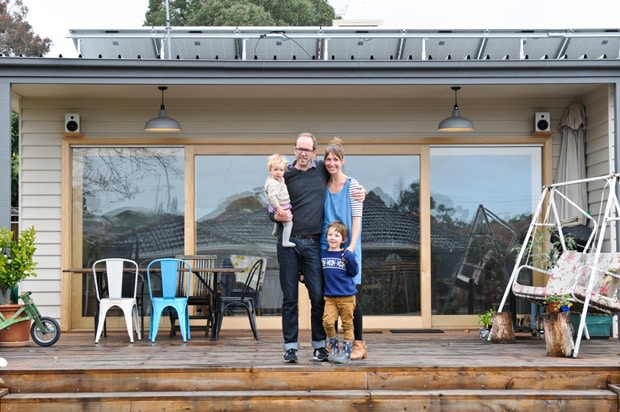
Positive Charge ran its first bulk buy scheme, vetting available solar suppliers to find one it was happy to recommend to householders. Energy Matters won the tender for preferred supplier, a discount was negotiated and the program offered advice as well. It was the start of what is now an ongoing investment in energy awareness.
Lucy Best is Communications and Community Engagement Lead with Positive Charge. She says the organisation’s philosophy is to help people reduce carbon emissions, and solar is just one way of doing so.
“Our focus is environmental, but we can also help people save money and live more comfortably if they have energy efficient homes,” she says. “After the initial bulk buy scheme, we identified that solar is one of the simplest ways for people to reduce their bills and reduce carbon emissions. Positive Charge was set up as a mechanism to do that.”
From electric bikes to LED lights
In its first year of operation, Positive Charge provided resources and guidance around solar PV, electric bikes and LED lights, and worked with assigned suppliers to the Victorian Energy Efficiency program that were giving out Renewable Energy Certificates (RECs). It was all about linking people with suppliers so they could do the things they wanted to do.
“We now work with a supplier who does draft-proofing and
insulation,” Lucy says. “We use Energy Matters for solar, and we still link people up to LED suppliers. We’re also currently running a procurement to find suppliers for hot water heat pumps and reverse cycle air-conditioning for heating and cooling.”
Zero carbon emissions – can individuals make a difference?
We hear a lot about Australia’s commitment to the Paris Agreement, the government’s pledge to reach an emissions target of 26-28 per cent below 2005 levels by 2030. But is it possible to make a difference at a grassroots level?
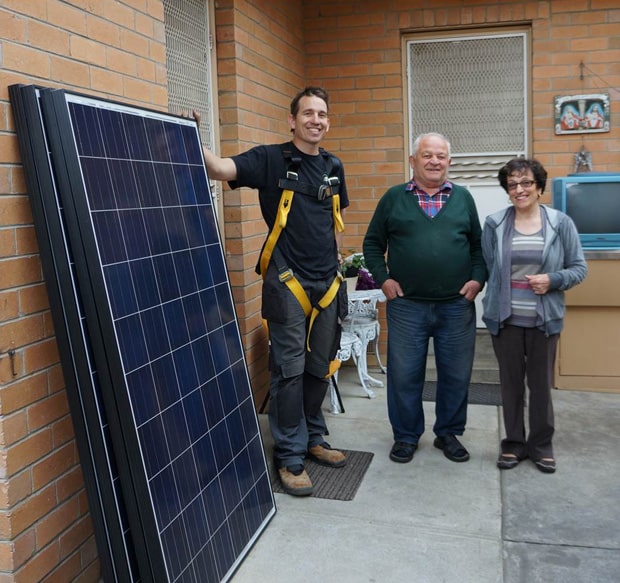
Lucy says yes, everyone can make a difference, and that reducing emissions isn’t just about putting solar panels on the roof.
“The housing stock in Australia is typically not very energy efficient,” she explains. “But there’s lots that people can do to retrofit, even outside by putting solar panels on. They can also buy green power. We can advise people on a range of things, whether their incentive is saving money or reducing carbon emissions.
“Most people come to Positive Charge because they want to save money and help the environment. Very few people come solely with the idea of wanting to improve the environment. We’re happy for them to do both if the bottom line is that they reduce carbon emissions.”
Financial support and the Solar Saver program
Positive Charge worked with Darebin City Council on its first Solar Saver scheme, in which the council paid the upfront costs of installing solar on pension and concession card holder households. Those households then paid the cost back through additional rates over ten years, and they didn’t have to start paying for six months after installation. Positive Charge chose Energy Matters as their supplier for Solar Saver rounds 1 and 2.
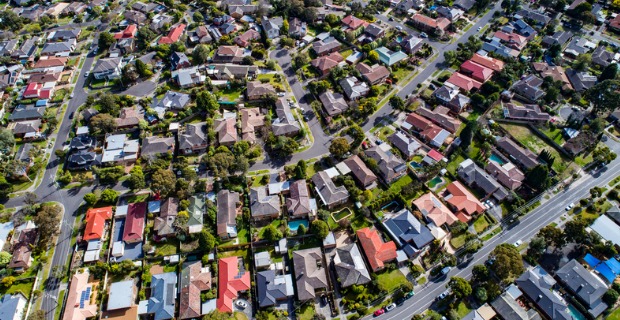
Lucy says Positive Charge would love to provide finance, but can’t. “We don’t have a bucket of money – we’d love to help people with the upfront financial cost, but we’re unable to.”
What Positive Charge can offer is advice and recommendations. With an overwhelming number of choices for solar installation, having someone talk you through them is a great benefit.
Who’s eligible for support via the Positive Charge solar program?
Anyone can call Positive Charge, or go on the Positive charge solar program website and request a quote from a selected supplier. They also work with councils, helping them with their communications and delivering information sessions. “We might go and do an information session, and sometimes one of the staff from Energy Matters comes along as well as a technical expert and we explain how it all works,” Lucy says.
“A lot of it is myth-busting and explain all the issues around solar. Lots of people don’t even know how to read their electricity bill. Then they can sign up for a quote through us or not, we’re just there to give advice. People also don’t realise they can shop around and get a better deal. They say, ‘Well I’ve been with Origin for five years, surely they’ll treat me better because I’m a long-term customer?’ Unfortunately, the opposite is true.
“People want to know about the upfront costs, but then the other barrier that we breakdown is explaining about the Renewable Energy Target, and telling them about STCs. We also help people understand the quotes that they’ve got from their solar suppliers.”
Choosing a reliable solar installation partner
As part of their procurement process for a solar panel installation partner, the Positive Charge solar program only looked at suppliers and installers who are Clean Energy Council accredited in both categories, which means as a supplier and a retailer. There are many companies accredited as a supplier, but far fewer who are also an accredited retailer. Being an accredited retailer means the solar company’s products meet Australian standards. It also means the company complies with Australian retail regulations around privacy and confidentiality.
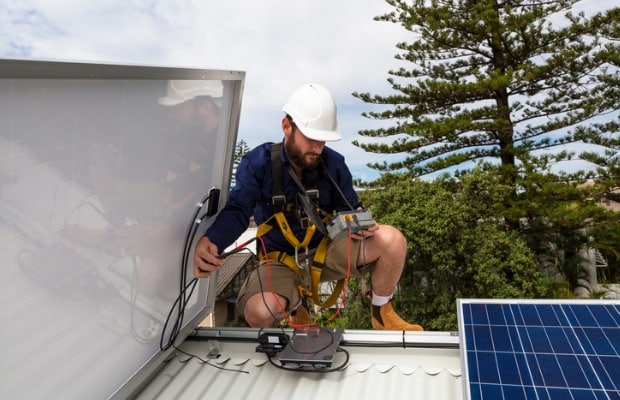
After these initial checks, Positive Charge made a shortlist then engaged the Alternative Technology Association to review each company’s product. The ATA checked wiring systems, framing systems, solar panels, and other specs. The supplier also needed to be able to handle the high volume demanded. The Positive Charge solar program works with 15 councils in Victoria and 11 in NSW, which means they reach a lot of people. In the end, they selected Energy Matters.
“We liked the longevity of the company, and Energy Matters has a good track record. We’ve also worked with them for a long time,” Lucy says.
Is it possible to zero your power bills with solar?
Thanks to the Positive Charge solar program, Lucy has a 3.14 kW solar system installed in her house. She says in summer she’s in credit, and in winter she has a bill. “That’s a pretty good place to be,” she says. “I’m generating a lot more than I use, so even my evening usage is covered by credit in summer.”
Asked if zero power bills is possible for everyone, Lucy says the answer is complex. “People’s usage and usage patterns are a big factor. The size of your roof, its angle and aspect are all factors too. It would be hard with the current feed-in tariff structure to get a zero bill.”
On the question of battery storage, Lucy has an interesting insight. “There’s discussion about ‘time of use’ feed-in tariffs and I think if that happens it will drive the uptake of batteries. It certainly would for me. If I was forced to have a time of use payment structure that meant I was going to be charged a lot higher in the evenings and given a lot lower feed-in tariff at certain times of the day when I might be more likely to use solar, then battery storage would become a lot more favourable.”
So if everyone with solar panels was forced onto a time of use tariff, what would happen? “I think we’d see a big spike in battery uptake,” Lucy replies.
Find out more about Positive Charge
In the meantime, if you want to know more about ways to help reduce carbon emissions, or need information about solar energy or just want to improve energy use around your home, get in touch with Positive Charge. It’s all about putting power into the hands of the people.
Positive Charge also helps in other local government areas, such as Melbourne City.
Call 1300 23 68 55 or email hello@positivecharge.com.au









